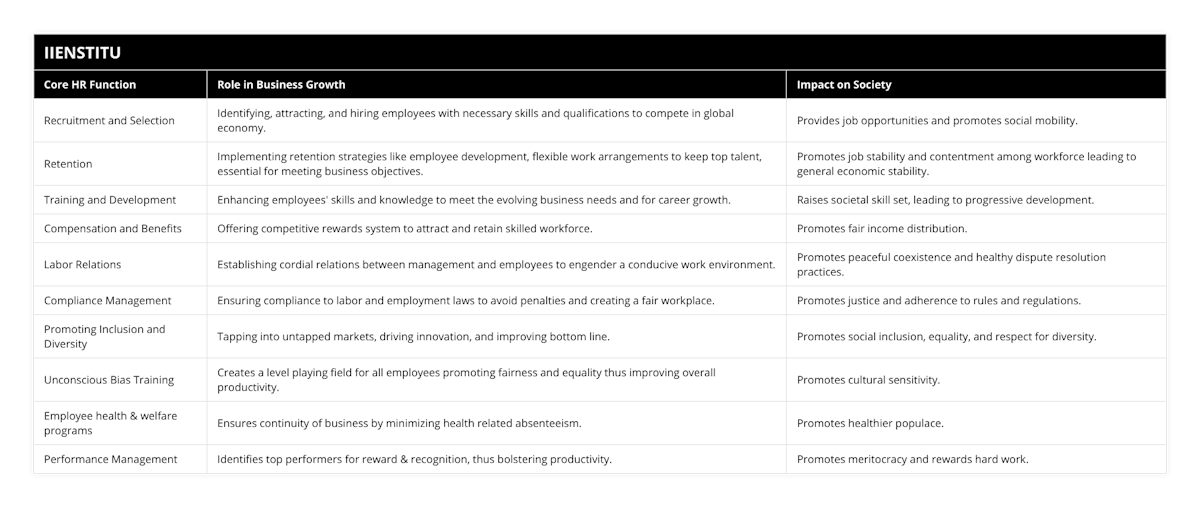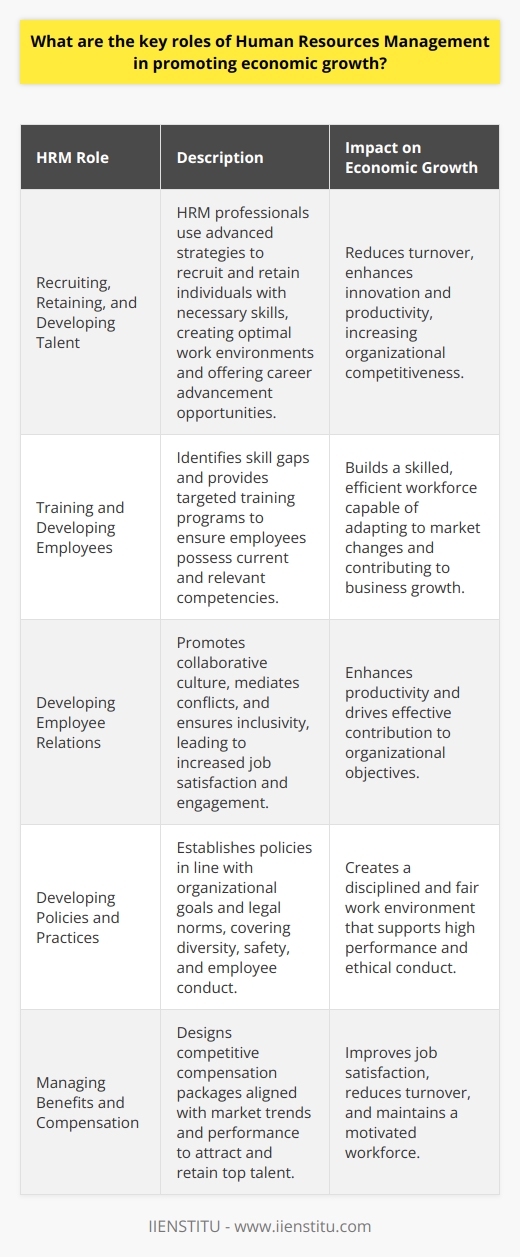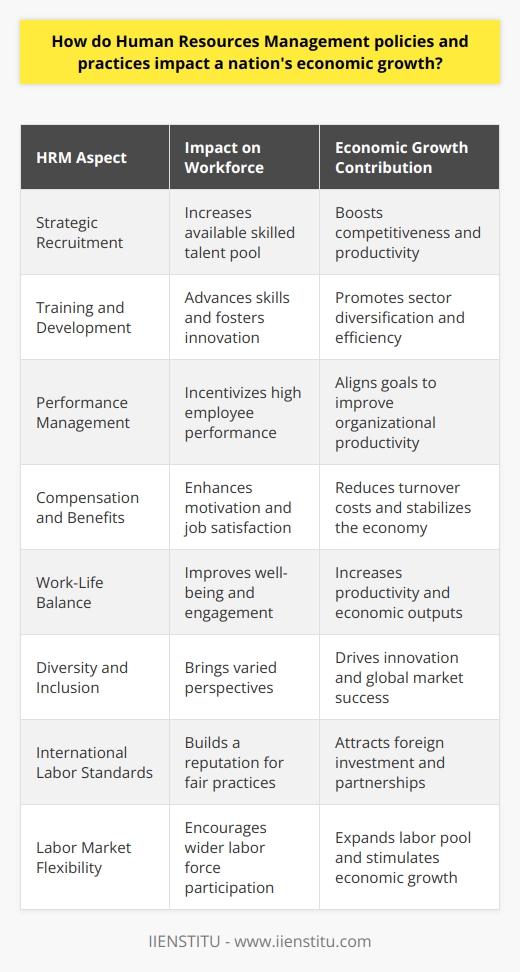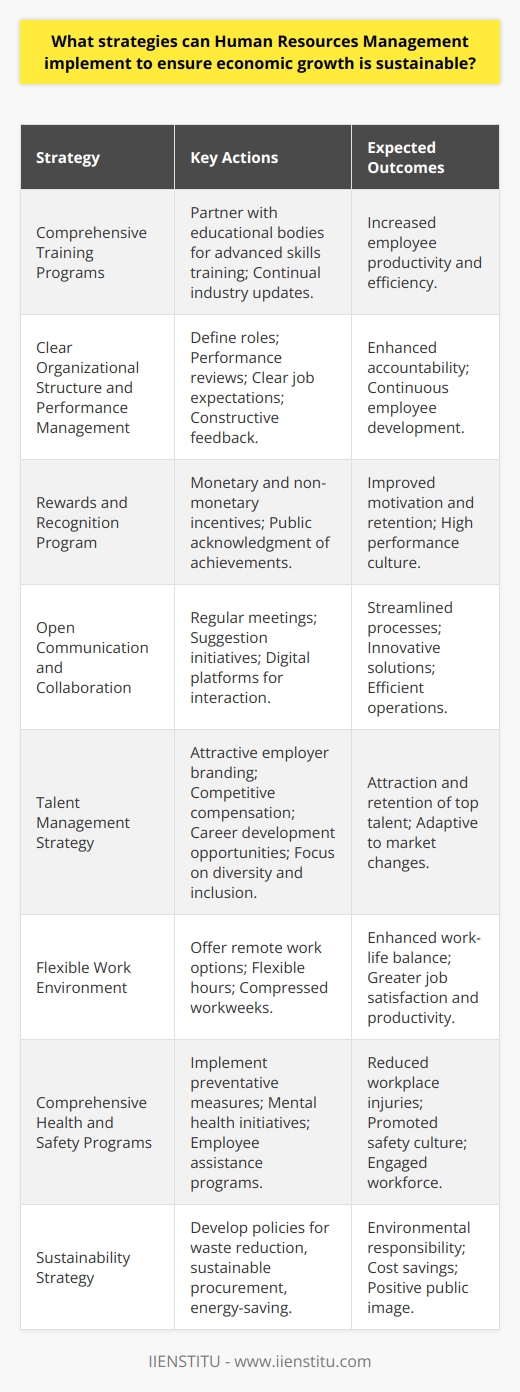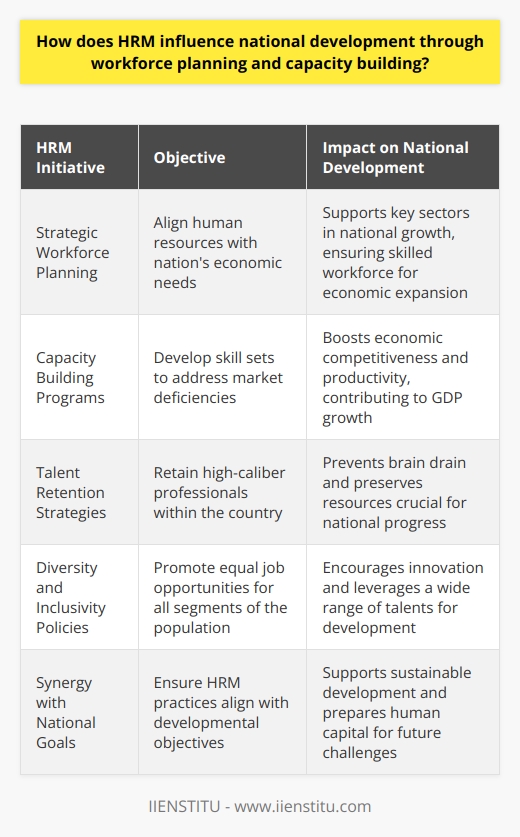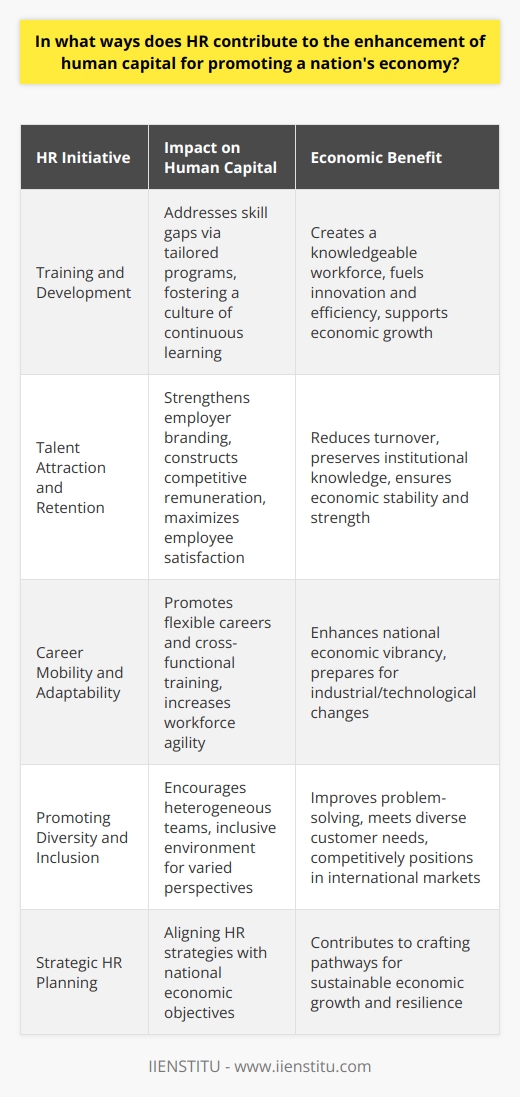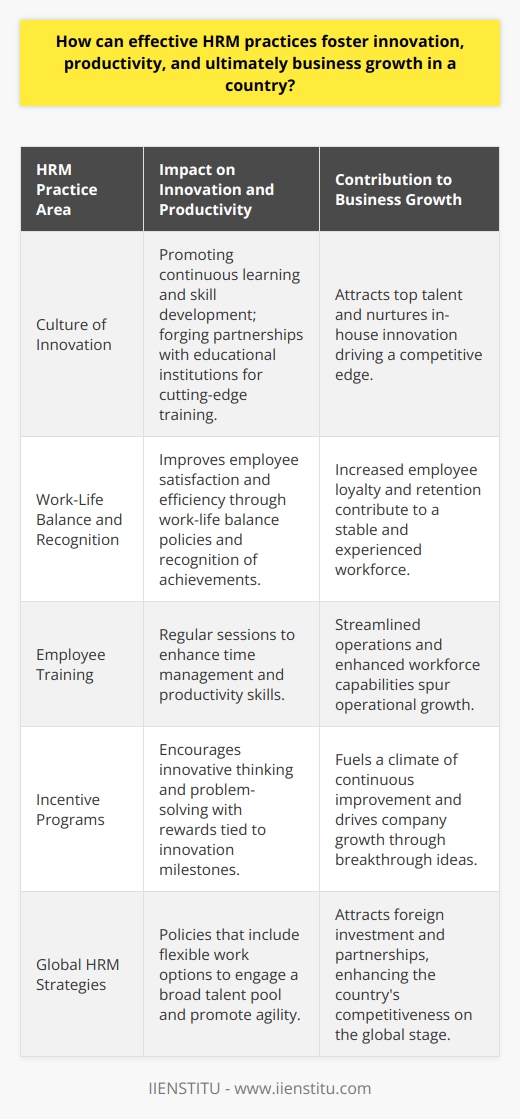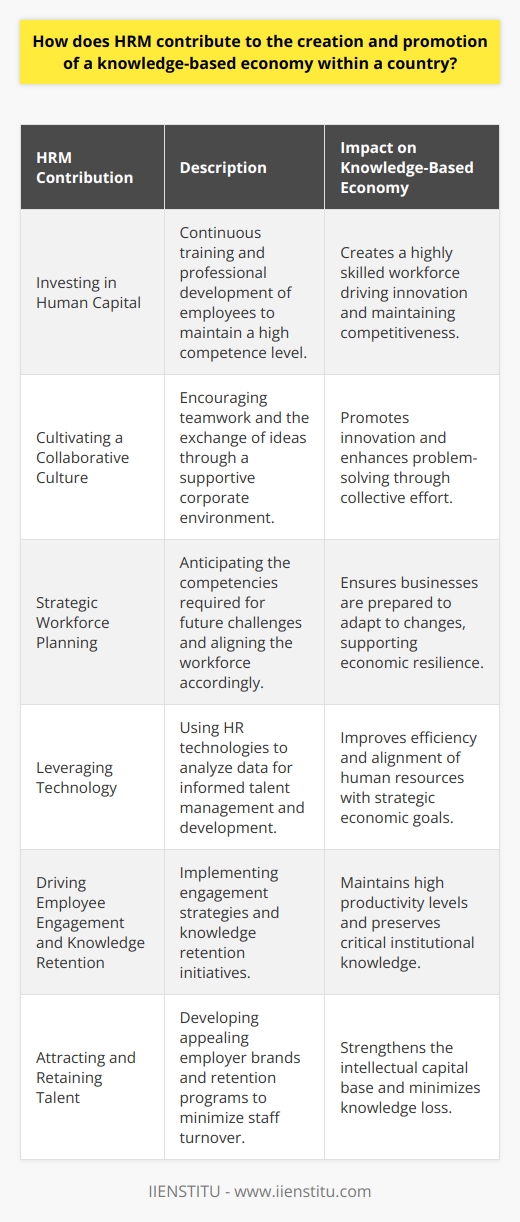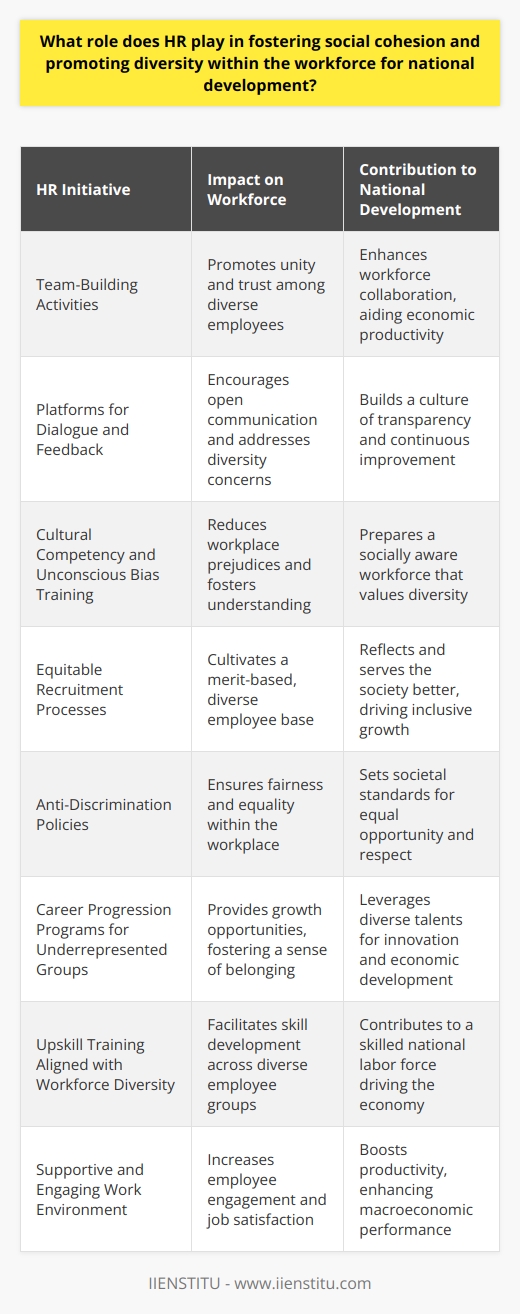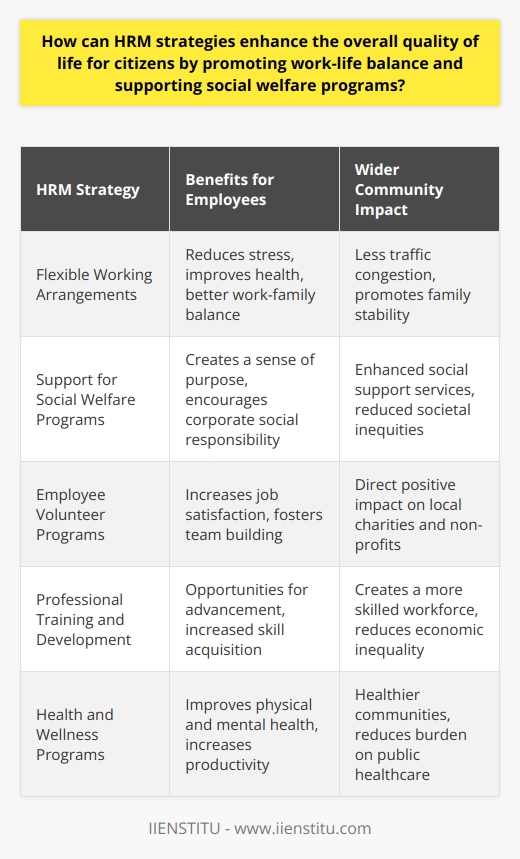Human Resource Management (HRM) is the process of managing people in organizations. HRM includes the functions of recruiting, selecting, training, and developing employees. HRM is also responsible for employee compensation and benefits, labor relations, and compliance with employment and labor laws.
Related Course: Human Resources Course
In recent years, the role of HRM has become increasingly important in the development and growth of nations. As businesses expand into new markets and global economies become more interconnected, the need for effective HRM practices has never been greater. By attractiing and retaining top talent, HRM plays a vital role in ensuring that businesses have the skilled workforce they need to compete in today's marketplace. In addition, by promoting workplace policies and practices that foster inclusion and diversity, HRM can help businesses tap into previously untapped markets and drive innovation.
The Importance of Attracting and Retaining Top Talent
One of the most important roles of HRM is to attract and retain top talent. In order to compete in today's global economy, businesses need to have access to the best possible employees. This requires an effective recruiting strategy that can identify potential candidates with the necessary skills and qualifications.
Once potential candidates are identified, it is then up to HRM to convince them to join the company. This can be done through a variety of methods, such as offering competitive salaries, interesting work assignments, and opportunities for career growth.
In addition to attracting top talent, HRM must also focus on retaining existing employees. This is often done through programs such as employee development initiatives, which provide employees with opportunities to improve their skills and knowledge.
Other retention strategies include offering flexible work arrangements, such as working from home or part-time schedules, which can help employees maintain a healthy work-life balance. By investing in its human capital, a company can ensure that it has the skilled workforce it needs to meet its business objectives.
Promoting Workplace Policies that Foster Inclusion and Diversity
Another important role of HRM is to promote workplace policies that foster inclusion and diversity. When businesses embrace inclusion and diversity within their workforce, they are able to tap into previously untapped markets and drive innovation. For example, by hiring employees from different cultural backgrounds, businesses can better understand and serve diverse customer base.
In addition, by providing training on how to prevented unconscious bias in the workplace, businesses can create a more level playing field for all employees, regardless of their background or identity. By promoting policies that foster inclusion and diversity within their workforce, businesses can not only improve their bottom line but also make a positive impact on society as a whole.
The role of HRM has become increasingly important in recent years as businesses expand into new markets and global economies become more interconnected. Effective HRM practices are essential for attracting and retaining top talent as well as promoting workplace policies that foster inclusion an diversity. By investing in its human capital, a company can ensure that it has the skilled workforce it needs to meet its business objectives while also making a positive impact on society as a whole.
